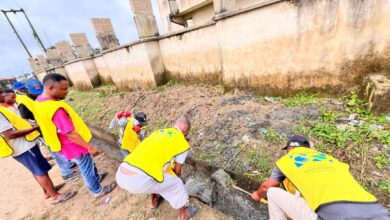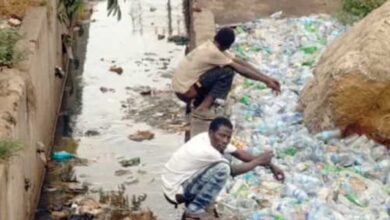Akwa Ibom charts new course on water, sanitation with Policy Approvals

By: Theresa Donatus, Uyo.
In a decisive move to strengthen water governance and improve public health, the Akwa Ibom State Government has approved a suite of strategic policy documents that are expected to transform the state’s Water, Sanitation and Hygiene (WASH) sector.
The approval of the WASH Policy, Monitoring & Evaluation (M&E) Framework, and the Open Defecation Free (ODF) Roadmap marks a turning point in efforts to ensure universal access to clean water and proper sanitation, key components of Sustainable Development Goal 6.
Announcing the development in Uyo, Professor Gabriel Umoh, Director of the Ibom WASH Media Committee and the African Human Development Centre, welcomed the decision, noting that it followed years of sustained advocacy by civil society groups.
“This is a significant victory for both public health and civic engagement, it took over three years of consistent pressure and collaboration for this to happen. We commend Governor Umo Eno for taking this bold step.” Umoh said.
He also credited Commissioner for Water Resources and Sanitation, Dr. Ubuoh Ubuoh, for promptly advancing the documents to the State Executive Council shortly after assuming office.
Umoh, however, warned that without robust implementation and sustainable funding, the policies will be at risk of becoming symbolic. “With changing donor priorities, especially from partners like USAID, our governments must now take full ownership of the WASH sector.”
Engineer Edo Bassey Etuk, Managing Director of Akwa Ibom Water Company Limited, echoed similar sentiments, calling the approval “a critical foundation” for future investment.
“This is more than a policy win. It sets us on the path to access key funding, including from the World Bank’s SPIN program,” he also highlighted one pending legislative requirement which is the Water Regulation Law 2025. According to Etuk, Governor Umo Eno has already directed the Ministry of Justice and the State House of Assembly to expedite action on the law, which is a prerequisite for accessing counterpart funding under the World Bank’s Sustainable Power and Irrigation for Nigeria (SPIN) program.
Etuk reminded stakeholders of Governor Eno’s earlier ₦200 million commitment during the National Water Council meeting in February, which will become actionable once the regulation is passed.
Meanwhile, Mrs. Imaobong Dem, Chairperson of the Ibom WASH Media Committee, emphasized the role of multi-stakeholder collaboration in ensuring results.
“Political will has met advocacy,” she said. “Now, what we need is speed, accountability, and sustained momentum to ensure these policies don’t sit on the shelf.”
With legislation, financing, and community engagement highlighted as next steps, the newly approved WASH documents are being viewed as a crucial opportunity to reposition Akwa Ibom as a leader in sustainable water and sanitation delivery in Nigeria.




